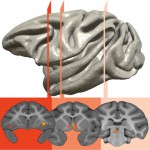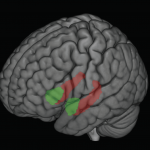Tag Psychiatry
Keeping up that positive feeling: the science of savoring emotions
Savoring a beautiful sunset and the positive emotions associated with it can contribute to improved well-being, according to research. But why and how are some people better than others in keeping the feeling alive?
Early life stress can leave lasting impacts on the brain
For children, stress can go a long way. A little bit provides a platform for learning, adapting and coping. But a lot of it - chronic, toxic stress like poverty, neglect and physical abuse - can have lasting negative impacts.
It’s not all wedded bliss: Marital stress linked to depression
Marital stress may make people more vulnerable to depression, according to a recent study by University of Wisconsin–Madison researchers and their colleagues.
Hormones may usher abused girls into early adulthood
During the sort of tense situation that makes palms sweat and voices quaver, children and young adults are typically awash in cortisol, a stress hormone that sounds an alarm and prepares the body for fight-or-flight responses to danger.
Ned Kalin – revealing disorders of the brain
Dr. Ned Kalin, chair of the Department of Psychiatry, is an accomplished biological psychiatrist whose research focuses on anxiety. Through imaging studies and understanding the genetic and environmental components of mental illness, his lab is working toward discoveries that can form the basis of early interventions to treat children who are at risk of developing long-term anxiety and related psychiatric disorders.
In autism, age at diagnosis depends on specific symptoms
The age at which a child with autism is diagnosed is related to the particular suite of behavioral symptoms he or she exhibits, new research from the University of Wisconsin–Madison shows.
Researchers discover the brain origins of variation in pathological anxiety
New findings from nonhuman primates suggest that an overactive core circuit in the brain, and its interaction with other specialized circuits, accounts for the variability in symptoms shown by patients with severe anxiety.
Nursing heeds the call for psychiatric health care
Recently, the Pentagon reported 349 military suicides in 2012 — outnumbering the 295 American soldiers who died in 2012 in Afghanistan — and warned of a worsening trend as more soldiers return stateside and transition back to their families and communities. The sobering statistics, advocates say, drive home the need for yet a stronger commitment to accessible community-based mental health services.
Early stress may sensitize girls’ brains for later anxiety
High levels of family stress in infancy are linked to differences in everyday brain function and anxiety in teenage girls, according to new results of a long-running population study by University of Wisconsin–Madison scientists.
The science of healthy minds brings Dalai Lama to UW–Madison
The Center for Investigating Healthy Minds at the University of Wisconsin–Madison's Waisman Center will welcome His Holiness the 14th Dalai Lama to its public grand-opening celebration Saturday-Sunday, May 15-16.
Depression saps endurance of the brain’s reward circuitry
A new study at the University of Wisconsin–Madison suggests that depressed patients are unable to sustain activity in brain areas related to positive emotion.
Study: Can meditation sharpen our attention?
A new study at the University of Wisconsin–Madison suggests that people can train their minds to stay focused.
Future angst? Brain scans show uncertainty fuels anxiety
Anyone who has spent a sleepless night anguishing over a possible job loss has experienced the central finding of a new brain scan study: Uncertainty makes a bad event feel even worse.
Cognitive computing: Building a machine that can learn from experience
A UW–Madison researcher says the goal of building a computer as quick and flexible as a small mammalian brain is more daunting than it sounds.
Curiosities: Why do people like to scare themselves by watching horror movies or going on thrill rides?
First of all, it’s important to remember that many people don’t enjoy these experiences, said Jack Nitschke, a UW–Madison professor of psychiatry and psychology.
New study shows persistence of anxiety
We all know people who are tense and nervous and can't relax. They may have been wired differently since childhood.
Study shows compassion meditation changes the brain
Cultivating compassion and kindness through meditation affects brain regions that can make a person more empathetic to other peoples' mental states, say researchers at the University of Wisconsin–Madison.
Professor to be featured on ABC’s 20/20 tonight, Jan. 11
Richard Davidson, the Vilas Professor of Psychology and Psychiatry, will be featured on ABC’s 20/20 program tonight, Jan. 11, 2008.
Brain scans show meditation changes minds, increases attention
For hundreds of years, Tibetan monks and other religious people have used meditation to calm the mind and improve concentration. This week, a new study shows exactly how one common type of meditation affects the brain.











